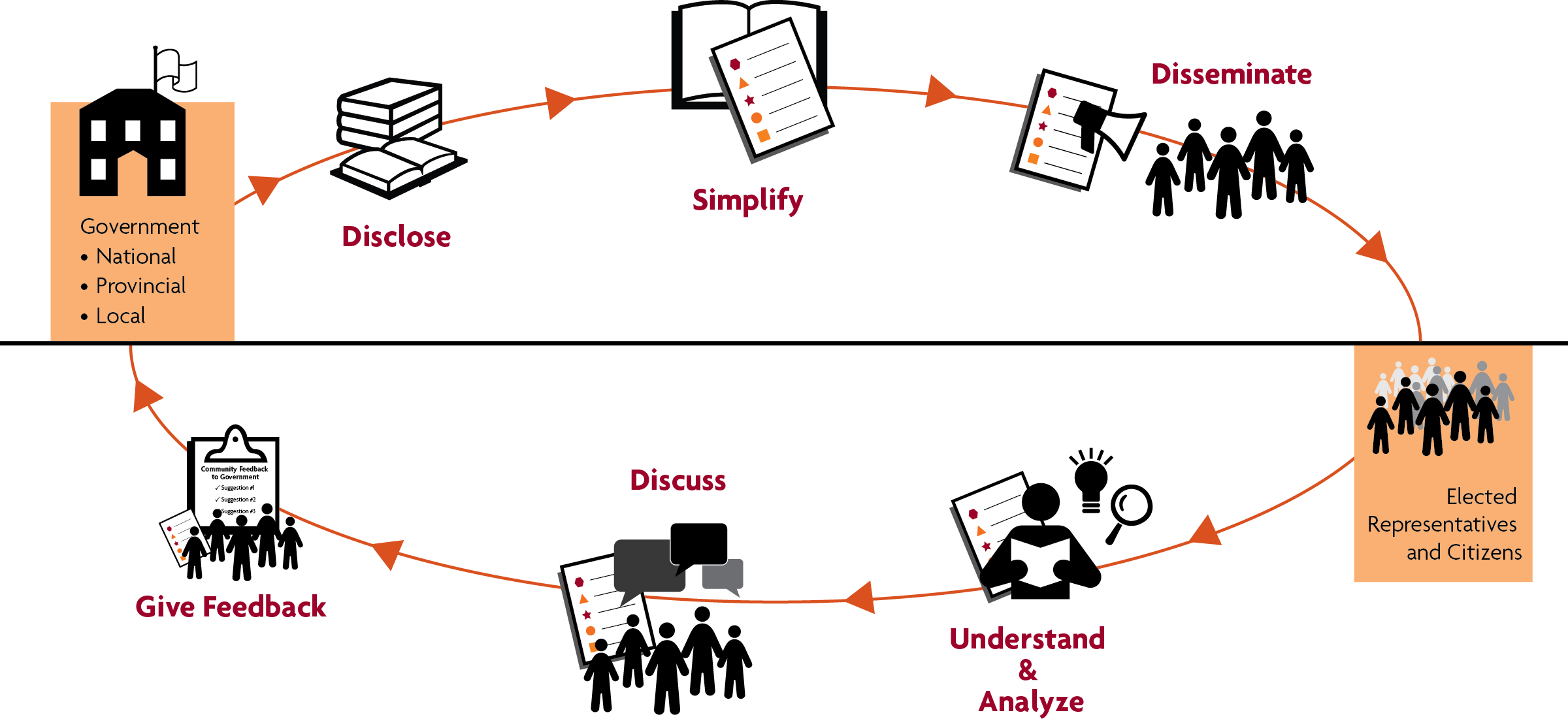What is Budget Transparency?
Budget transparency refers to the extent and ease with which citizens can access information about and provide feedback on government revenues, allocations, and expenditures. Budgets are key documents since they lay out a government’s priorities in terms of policies and programs. Opening up budgets is a first step toward democratizing the budget process and giving citizens a say in policy formulation and resource allocation.
Budget transparency, while not a goal in itself, is a prerequisite for public participation and accountability. A budget that is not transparent, accessible, and accurate cannot be properly analyzed. Its implementation cannot be thoroughly monitored nor its outcomes evaluated. Given the technical nature of budgets and the budget process, transparent budgets require that the information contained in budgets is presented in full as well as in simplified form, and in a timely manner.

Why is Budget Transparency Important?
Budget transparency entails numerous benefits but four stand out. First, budget transparency and oversight over how resources are allocated and spent are powerful disincentives for officials to misuse or misappropriate funds, reducing the likelihood of corruption. If budgets are open to the public and effective legislative scrutiny, there is also less room for deviation from policy decisions and reversal of budget allocations. Additionally, budget transparency allows citizens to provide feedback on the quality and adequacy of services and infrastructure provided. This feedback, combined with reduced corruption, results in more efficient use of resources.
In many cases, perceptions of high levels of corruption and the opaqueness of operations lie at the heart of citizens’ distrust of their governments. Opening up their books of account is likely to lead to more trust in governments.
Finally, budget transparency can help generate higher revenues for governments since citizens are more likely to pay taxes if they trust that their money will be well spent.
How Can Budget Transparency Be Promoted?
Governments and public institutions at all levels (national, provincial, local, service delivery units) formulate budgets. However, opaque budget processes, off-budget activities, and poorly managed expenditure systems provide manifold opportunities for corruption and resource mismanagement. The Budget Transparency Feedback Loop shows the key steps involved in making budgets transparent and transforming them into tools which empower citizens to influence policy, programs, and resource allocations.
The Cameroon Budget Inquirer plainly and elegantly tackles the first two steps in the loop, disclosure and simplification. The site’s potential to serve as an information dissemination device is also significant given the nature of the internet itself. However, the realization of this potential will largely depend on the site’s users and the extent to which they share it with friends, family, and colleagues. We hope that by facilitating the top half of the loop, we will foster greater understanding of and discussion around budget issues, and eventually elicit citizen feedback to public officials. While the site already features functionalities which allow comments and therefore facilitate discussion, there is currently no direct link of communication to budget holders to give feedback or to deposit queries. If there is demand, such a feature can perhaps be developed in the future.